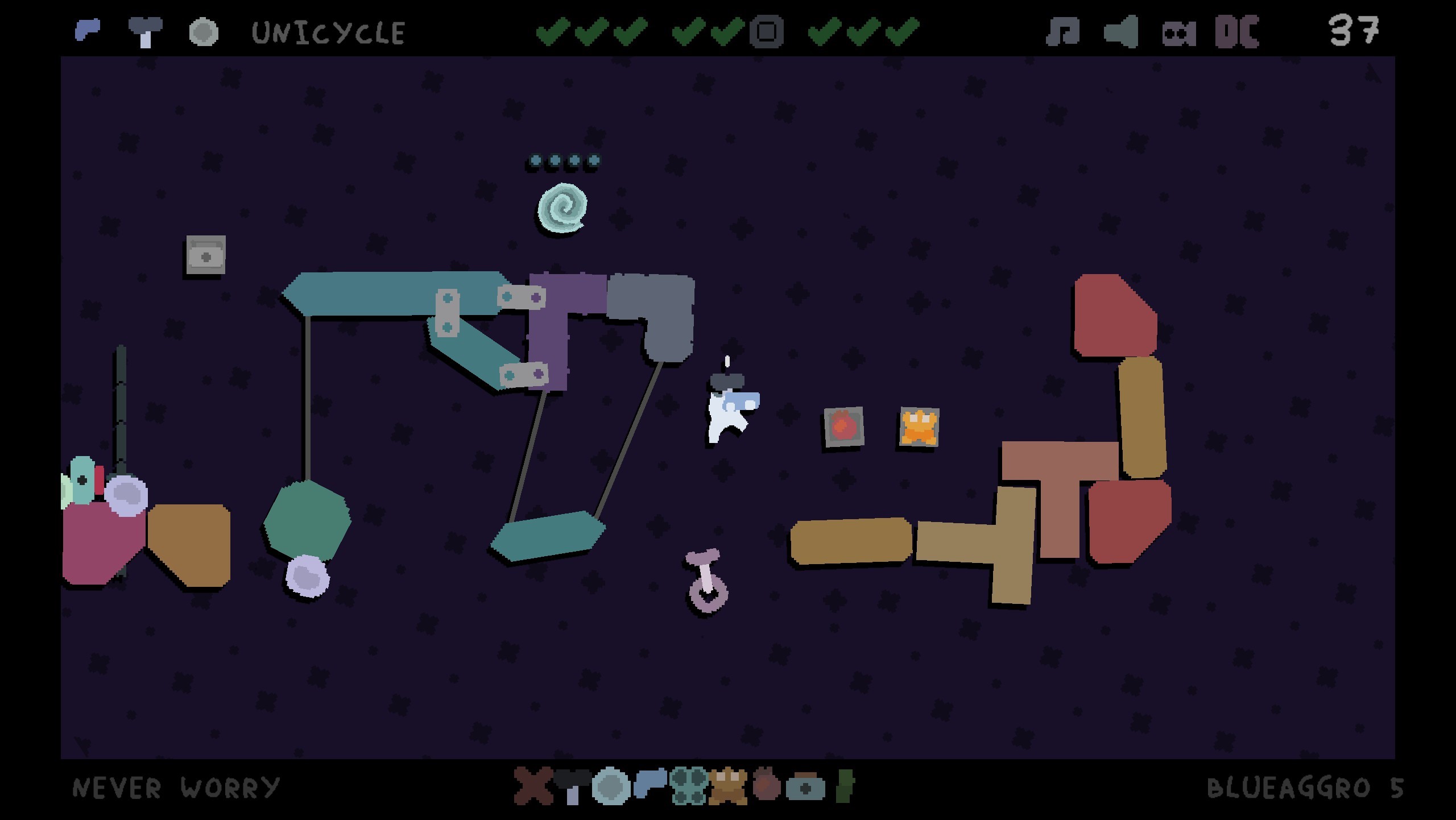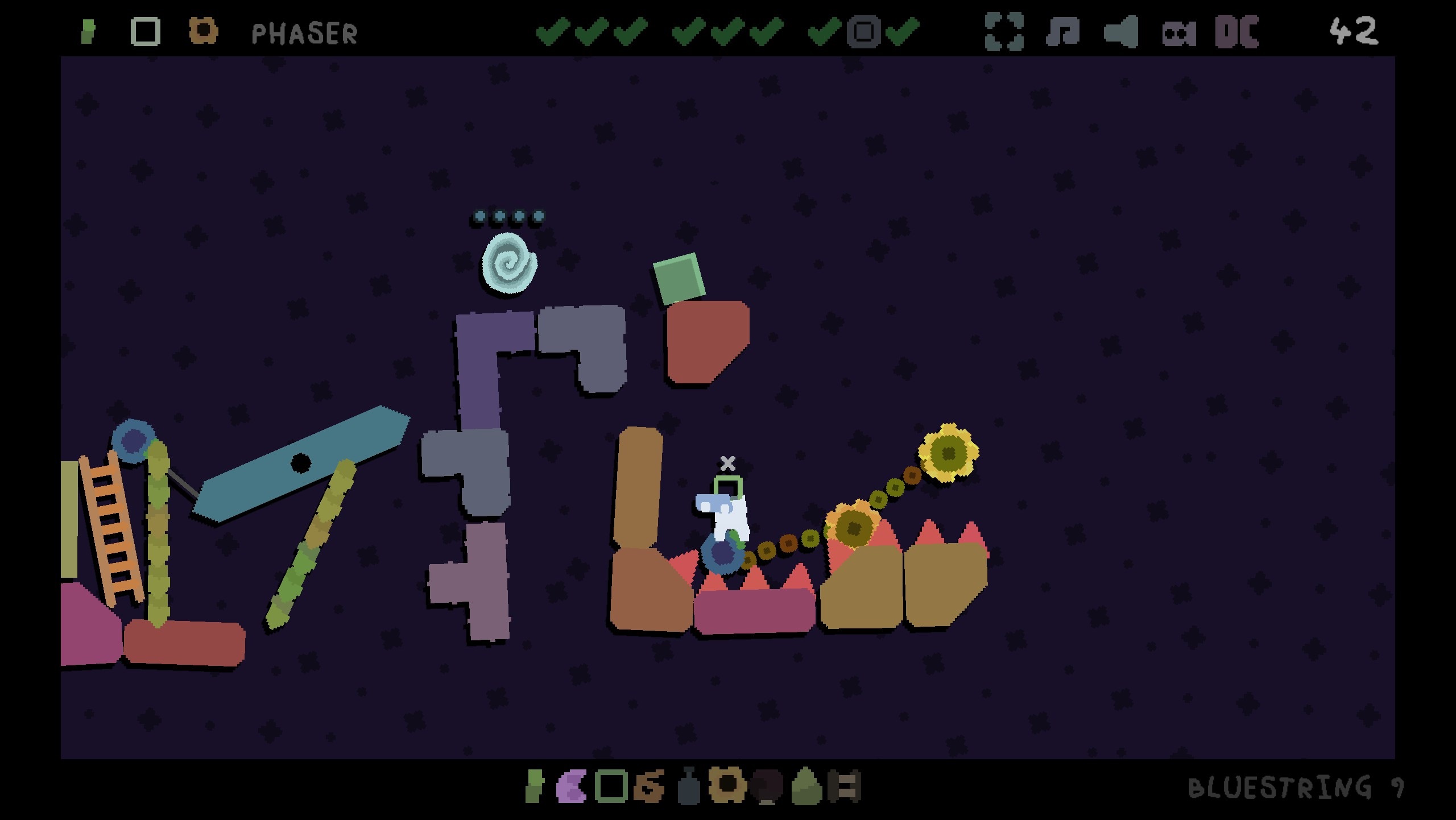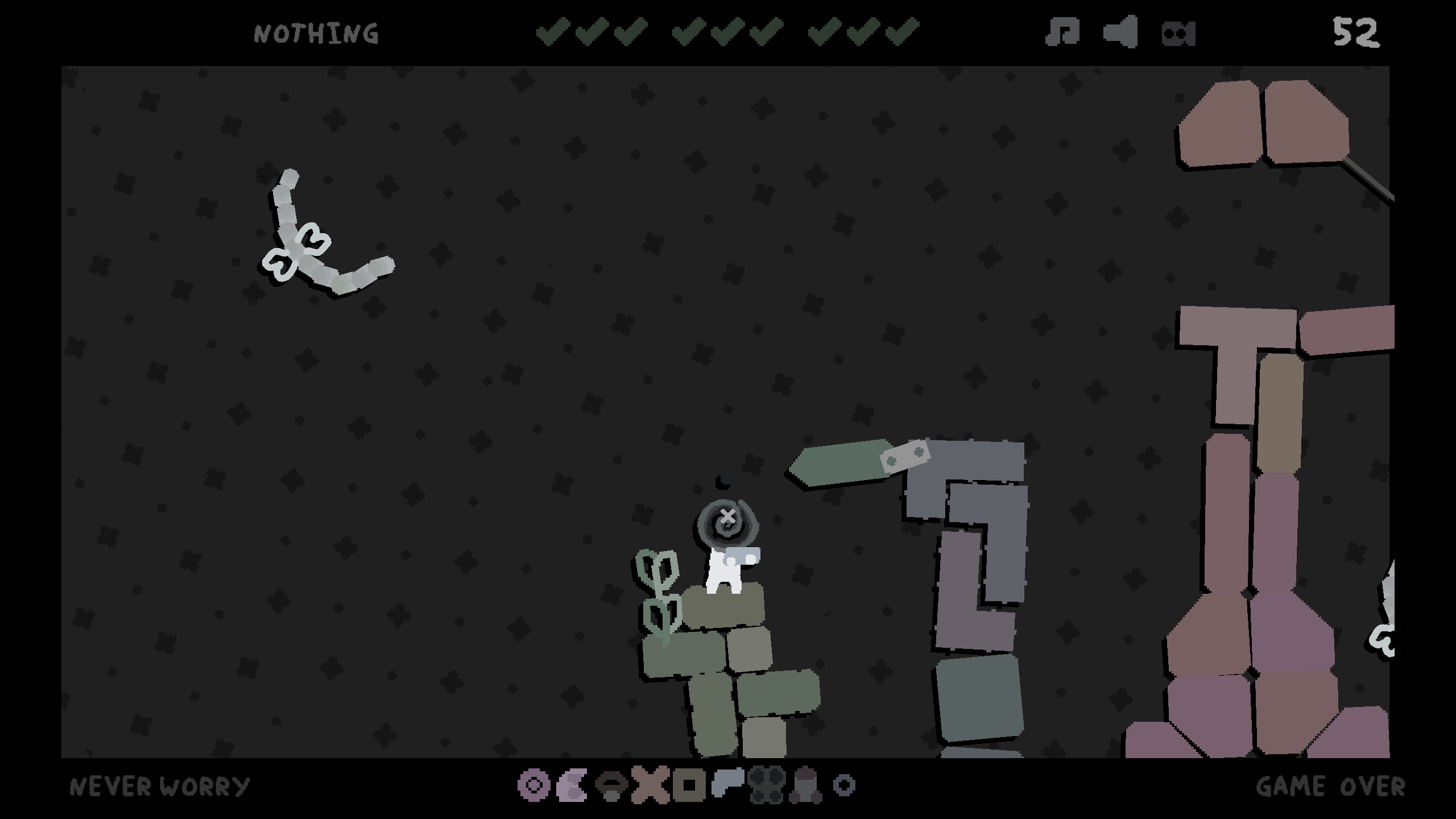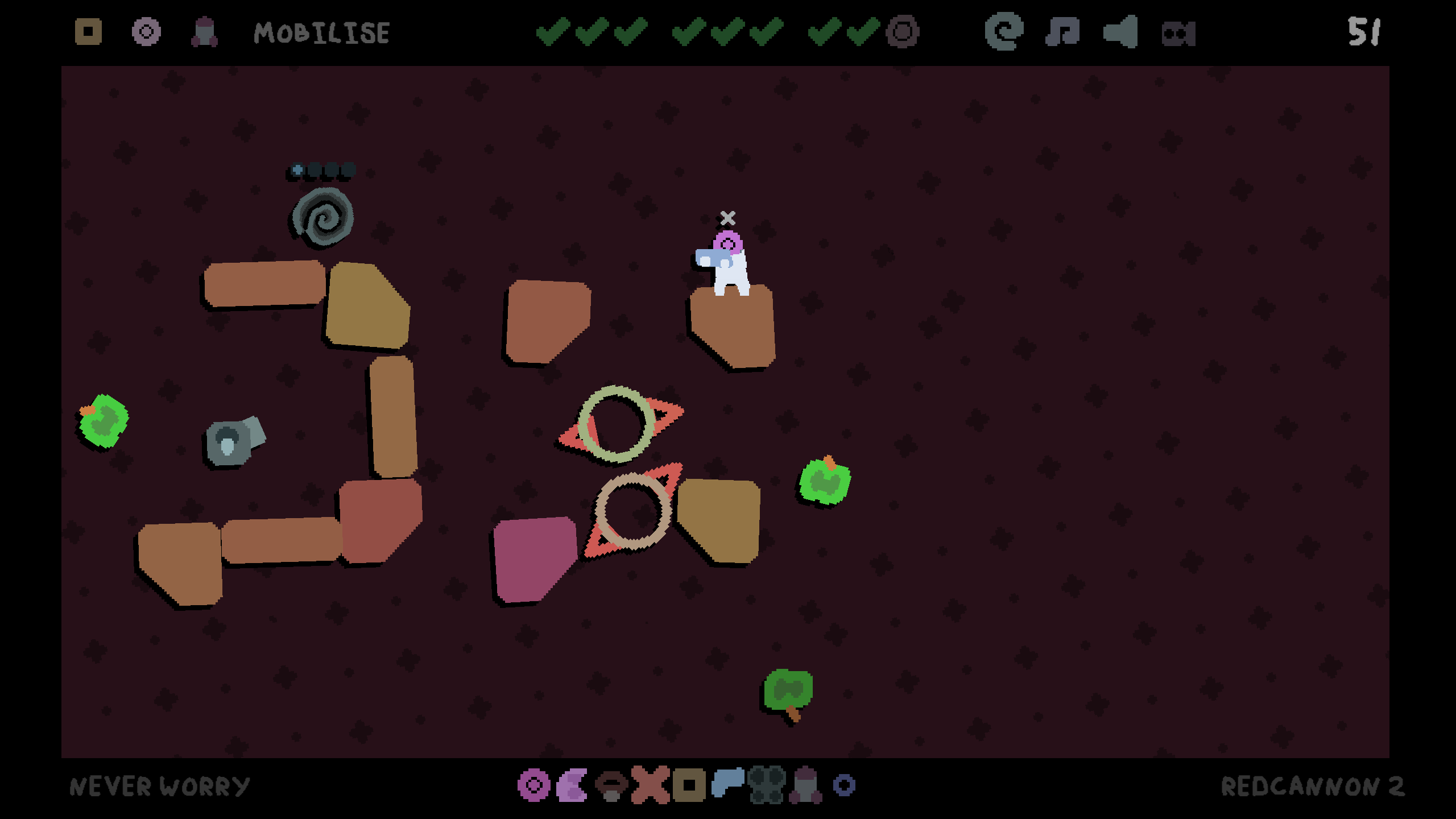Review: Mosa Lina — Experimental, Quirky, Successful
May 29, 2025*
Mosa Lina is a weird, unassuming, little game available now on both Steam and the Nintendo Switch family of systems. As a puzzle, physics-based platformer, it's not exactly the kind of game that'll pop out in any significant way. The game's trailers might vaguely show off the game's quirkiness, but it's impossible to fully appreciate Mosa Lina until you're actually playing it. The game knows exactly what it wants to be, and it's impressive how much personality it can convey. Mosa Lina is experimental. Its formula isn't without flaws, but it definitely makes for a great game.
*This review was updated on May 29, 2025 to reflect changes in the game and its availability.
Enjoyability: 10/12
You get as much enjoyment out of Mosa Lina as you want to get out of it. There's not much more to the game than what's on the surface. You solve random puzzles again and again and again. How long that'll stay interesting is pretty much up to you. It's something that could have your undivided attention for 2 whole hours on end. It could also bore you in 10 minutes, if you're getting some especially bad RNG. It effectively comes down to what you're willing to put up with. It can't guarantee you anything. For what it's worth, Mosa Lina was purposefully designed to be that way. Knowing that doesn't change how it feels in execution, though.
When you're not getting stuck, Mosa Lina can be addicting in a very distinct way. Success offers a quick rush of joy and accomplishment. And because individual levels can take even just a few seconds to complete, you can feel very accomplished without needing to play much. It's also very easy to laugh at your own failures, which is something that not many games can accomplish. Playing in multiplayer takes that to a whole other level. Something about Mosa Lina just makes it so easy not to take seriously — in the best possible way.

Gameplay: 10/12
Mosa Lina's gameplay can be defined pretty simply. Your main objective is to collect all the fruits available within a level and leave through a vortex when you're done. The three tools available to you on any given level will be randomized, drawn from a wider assortment of tools predetermined for your run. Levels are thrown at you in a random order, but the contents within have been manually designed.
Flexibility is an important quality to have when taking on Mosa Lina's levels. Having a good selection of tools will always be of great help, but you'll need to think outside the box sometimes. Thankfully, with so many different tools present in the game, there are a near infinite amount of ways to complete every level. The simplicity of everything is charming, and it's just fun to explore the physics to their fullest. You'll be discovering new techniques and combinations to use in your puzzle-solving, even 10 to 20 hours in.

Atmosphere: 11/12
Mosa Lina is just surreal. Idiosyncratic. Very much out of the ordinary. It emits weird vibes and doesn't really have much need to elaborate more on it. Part of its weird charm comes from the sound design. Its sound effects are direct and impactful; they have a weight to them that lasts a while. Meanwhile, the background music playing has this dream-like quality to it that is very relaxing. The two things are almost discordant, but they combine surprisingly well.
There's a realism to the physics, yet everything feels abstract in a strangely cohesive way. There's random interruptions to your gameplay that throw you into a liminal black-and-white space. Game's just weird. That's all it really boils down to. Mosa Lina is pretty unique, and it definitely has its place in most people's games library. And if anything, you can leave the game on just to keep the music playing. I know I've certainly done that a few times.

Design: 10/12
While the concept behind Mosa Lina is very well-thought-out and well-documented, that doesn't necessarily make the game feel perfect, if that makes sense. Mosa Lina was designed specifically to counter the 'lock and key' game design philosophy that has become more prevalent in recent years. For the unfamiliar, a 'lock and key' design provides exactly one solution for one problem within a game. While this may not seem like a devastating decision in design, it does hamper player creativity. Mosa Lina aims for the exact opposite, depending almost entirely on player creativity.
It's undeniable that there are flaws to Mosa Lina's design philosophy. Players can get a bad assortment of tools and end up with an impossible-to-beat level. That can happen repeatedly. Ultimately, however, what might bother a player might not even be the fact that their levels are unbeatable. They could have valid complaints about the complete lack of engagement in those situations, or, alternatively, too much engagement for no payoff. There really is no way for you to know if something is truly impossible. The majority of the Mosa Lina experience is very enjoyable, though, so this design clearly works. You just have to accept that it has some glaring downsides.

Direction: 10/12
Being easy to pick up and put down will always be a big boon to any game. Those are your Candy Crush's of the world. The kind that are addicting on the surface level and don't need much more to keep you playing. Mosa Lina is pretty comparable. There's nothing too deep in the game. There's nothing that requires too much commitment. If all you want is a go at a single level, that's more than fine.
There's no pressure on you whatsoever, and that's part of the appeal. You can learn at your pace. You can even try and speedrun through some levels, if that intrigues you. There's nothing for you to ever definitively beat, so you can't exactly complete the game either. It'll just be there. Waiting. Not much to forget. No way to get lost. Easy to come back to. That's Mosa Lina.